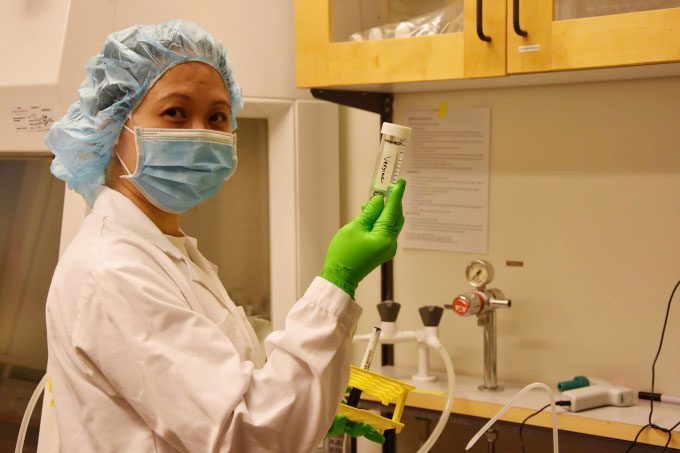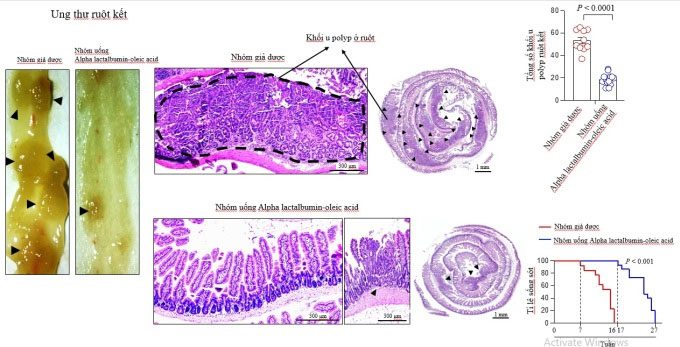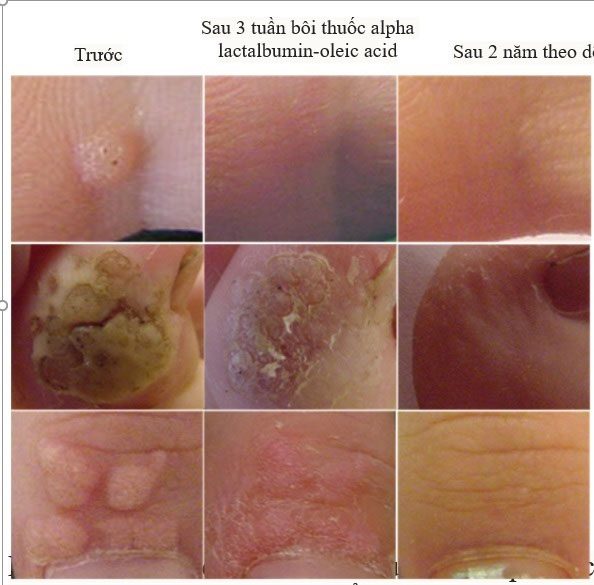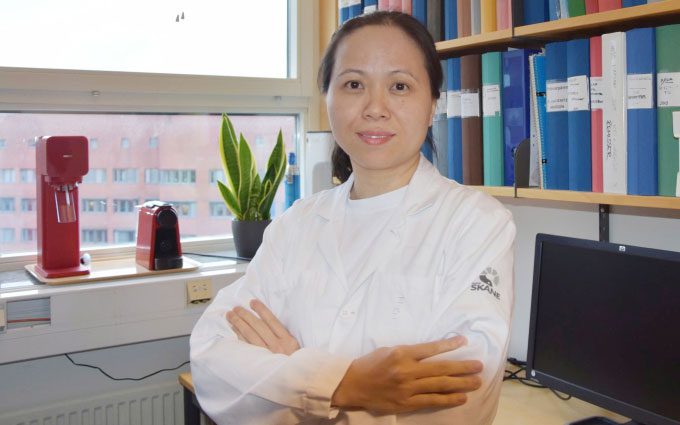From a substance found in breast milk, Dr. Tran Thi Hien and her colleagues at Lund University (Sweden) have created an alpha lactalbumin-oleic acid complex on an industrial scale to aid in the development of new cancer treatments.
Since 2000, many research groups around the world have been racing to create the alpha lactalbumin-oleic acid complex (also known as HAMLET/BAMLET – a substance found in breast milk) for the production of drugs against cancer. This substance was discovered by a research group led by Professor Catharina Svanborg (Lund University, Sweden) in 1995 and has been shown to have the ability to kill cancer cells without harming healthy cells/tissues. However, the research teams had only managed to create a stable HAMLET complex for a short time in laboratory settings.
Dr. Tran Thi Hien’s research group, along with Professor Catharina Svanborg, became the first team to successfully discover the process for creating the complex for clinical trials and industrial production.
The unique aspect of this complex is its alpha lactalbumin component – a protein found in human or cow’s milk – making it safe even for newborns. The complex specifically targets cancer cells or cells infected with pathogenic viruses/bacteria, without causing toxicity or side effects like those commonly seen with chemotherapy and radiation treatments.
This research opens a new avenue in safe and effective cancer treatment when combined with conventional therapies. “This is the biggest difference compared to existing cancer drugs, making them potential candidates for treatment methods,” Dr. Hien told our correspondent from Sweden.

Dr. Tran Thi Hien in the laboratory. (Photo: Provided).
This research has been undertaken by Dr. Hien and her collaborators since 2015. After nearly ten years, they discovered the process to produce a stable active form of the complex on an industrial scale. This result led to the development of feasible formulations that can be produced on GMP-certified factory lines and established methods for evaluating the cancer-killing effects of the drug post-production.
The group has successfully conducted preclinical research on the HAMLET complex for the treatment and prevention of various cancers including colorectal, liver, stomach, lung, breast, cervical, prostate, lymphatic, pharyngeal, oral cavity, and skin cancers… with various formulations. Phase 3 clinical trials approved by the FDA are underway for bladder cancer and stage 1 of malignant brain cancer.

Image of colorectal cancer and the tumor-reducing effect of the alpha lactalbumin-oleic acid complex (Tumor marked by black arrow). (Photo: Research team).
The team also demonstrated that this complex specifically kills HPV-infected cells, one of the causes of cervical cancer. By attacking and destroying the genetic RNA of the HPV virus, this complex causes both the infected cells and the virus to die without affecting healthy cells. This new targeted treatment method is effective against HPV-related diseases such as warts, gynecological infections caused by HPV/bacteria, and HPV-induced cervical cancer. Currently, there is no specific treatment for HPV. The findings were published in the prestigious medical journal New England Journal of Medicine.

Image of HPV-related warts in humans after 3 weeks of applying Alpha lactalbumin-oleic acid, with a recurrence rate of under 2% after 2 years. (Photo: Research team).
She added that producing the HAMLET complex on an industrial scale still faces many challenges, such as achieving high purity, sustainability, and stability when scaling up.
Currently, Dr. Hien plans to bring this production technology to Vietnam to develop new cancer drugs at a lower cost compared to imported medications. “I am ready to collaborate and transfer technology to Vietnam”, she said, expressing her desire to work with experts, doctors, scientists, and organizations to conduct clinical trials for cancer patients and develop production capabilities.
Associate Professor Dr. Do Thi Ha, Deputy Director of the Central Institute of Medicinal Materials, a specialist in research and development of new drugs at the Ministry of Health, noted that current chemotherapy and radiation treatments destroy healthy cells and cause side effects (such as hair loss, nausea, pain, blood disorders, reduced immunity, and nerve damage…). “The new cancer treatment therapies produced by major pharmaceutical companies are quite expensive,” she stated, adding that this is why many countries are continually seeking safe and effective cancer treatments at reasonable prices.
“The discovery of the HAMLET complex will open a new direction for cancer treatment in the future if we can conduct timely clinical trials,” Associate Professor Ha said. According to her, new cancer drugs derived from milk could potentially address two major issues: treatment effectiveness and side effects, making them very promising for future cancer prevention.

Dr. Tran Thi Hien. (Photo: Provided).
Dr. Tran Thi Hien was born into a poor farming family in Yen The, Bac Giang. Initially, she intended to study in the Education sector in her hometown to save costs, but an “incident” led her to Hanoi University of Pharmacy in 2002. Hien found her love for science in her second year and decided to pursue it. She obtained her Master’s and Doctorate degrees in Toxicology and Immunopharmacology from Chosun University, South Korea. Since 2013, Dr. Hien has been a senior research expert and lecturer at the Immunotherapy Department of Lund University, Sweden. Concurrently, she works at the Faculty of Pharmacy, Thai Binh University of Medicine and Pharmacy, conducting scientific research and training faculty remotely. With over 20 years of research, Dr. Hien has become the author and co-author of 50 international publications, with many works published in top medical journals worldwide: Nature Biotechnology, Nature Communications, Nature Reviews Urology, and Journal of Clinical Investigation. She also holds 2 international patents (awarded in 2020 and 2021) for the alpha lactalbumin-oleic acid complex, along with 3 patents in Vietnam. In 2015, she won the Young Scientist Award under 35 from the L’Oreal-Unesco Foundation. In 2020, her research group received funding from the European Union’s Horizon 2020 program (€2 million) for clinical trials on bladder cancer and she became the first Vietnamese scientist to participate in research and successfully test cancer drugs approved by the FDA for Phase 3. |




















































